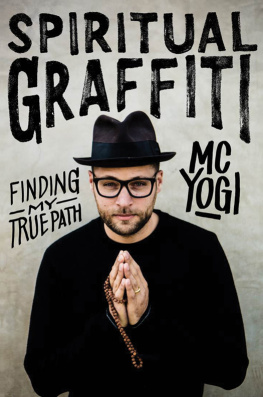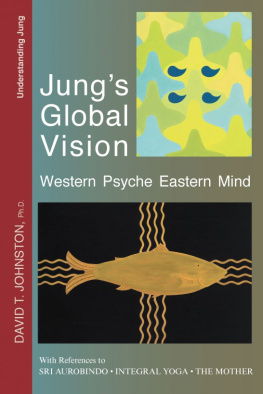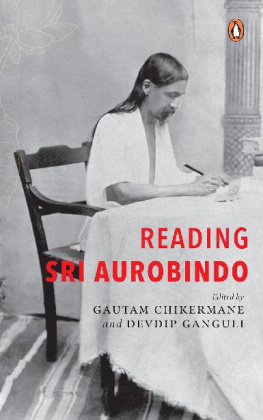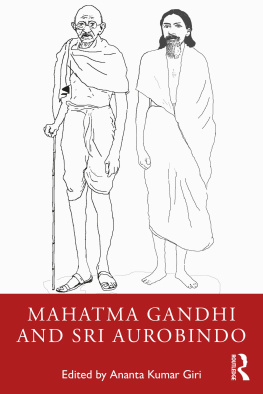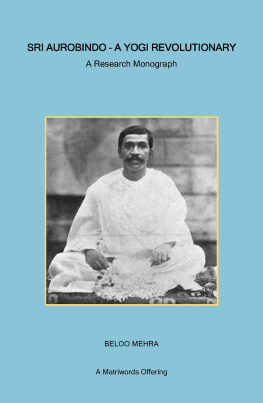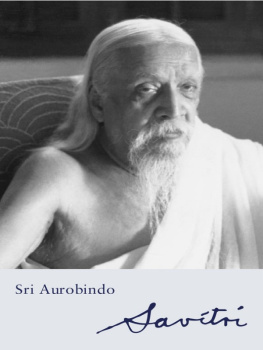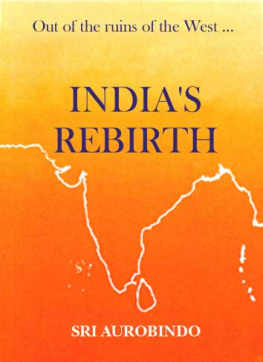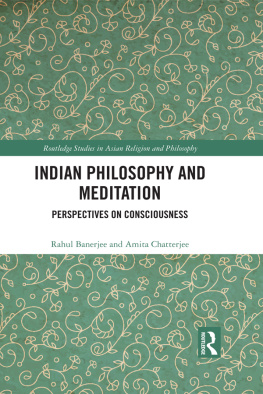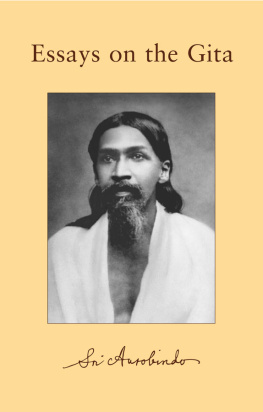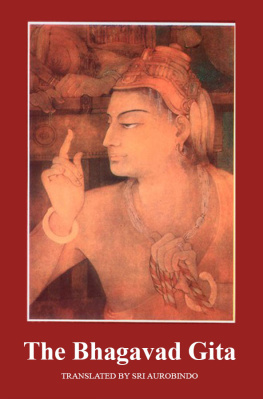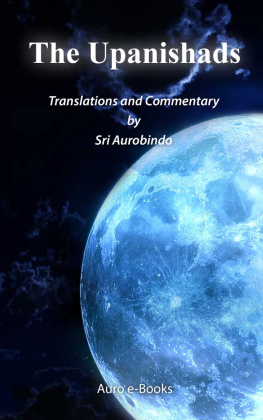Table of Contents
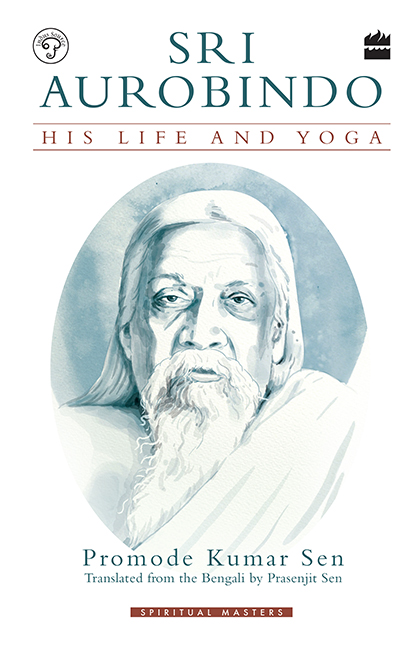
SPIRITUAL MASTERS
SRI
AUROBINDO
HIS LIFE AND YOGA
Promode Kumar Sen
Translated from the Bengali by
Prasenjit Sen

To the Memory of my Parents
Promode Kumar Sen and Jyotirmoyee Sen,
who led me literally holding my hand to Her Grace.
CONTENTS
During almost a score of years, a systematic attempt from various quartershas been hurling disgrace to Indian spirituality by brandishing jihad against so-called traditional hagiography in order to establish a novel methodology based on pseudo-psychoanalytical barbarism, for penning blasphemous pages in the name of biography. In the teeth of such vanity, we remain, however, fond of a possible and evident sanctity in personalities who, behind their resemblance to Tom, Dick and Harry, do embody from time to time superhuman values. At such a critical juncture, we congratulate Prasenjit Sen for bringing out in English translation the Bengali biography of Sri Aurobindoa classic since more than half a century written by his father late Promode Kumar Sen (1899-1952).
Almost a decade before the coming out of the well-known biography by Professor K.R.S. Iyengar, what did people know of Sri Aurobindo, when the first edition of this gem of a book appeared in 1939? Merely a legendary figure who had given up a comfortable job at Baroda to become the founder president of the National College? Or else, as the editor of the spitfire nationalist journal in English, the Bande Mataram? Or even, an escapist who fled government persecution, leaving in the lurch the freedom movement under the plea of his spiritual seeking? Soon he was even to be censured bitterly for sending a donation to the war-fund in support of the British.
*
Son of Shri Yogendranath Sen, a revolutionary activist in Jessore connected with organisations influenced by Sri Aurobindos movement, since his childhood the author, Promode Kumar Sen, had been familiar with journals edited by Sri Aurobindo; his father received them as subscriber and read them with due enthusiasm: the Bande Mataram, the Karmayogin, the Dharma. Once a learned critic, fascinated by the structure of the present biography, objected however, to the emotional undertone in the book as maintained by the author. In reply, Promode Kumar admitted that in spite of being a journalist by profession, busy analysing events and commenting on them, perpetually overwhelmed by the awe-inspiring personality of Sri Aurobindo, he could not restrain his emotion, just as people cannot help feeling spontaneously fascinated in the presence of the beautiful Himalayan peaks or before the solemn grandeur of the ocean.
*
By the time the second edition of the book appeared in December 1952, the author had passed away in April, after completing a thorough revision of the book, while the second edition was in press. On 1 August 1949, during this revision, he had looked back at the austere atmosphere of the Ashram when the book had been first published, shortly after the beginning of the World War; he observed with admiration how, in such a short lapse of time, the Ashram had grown into a vast laboratory of yoga in action (karmayoga). Not only action: the tremendous spiritual force of Sri Aurobindo had programmed even intensive physical culture and sports. Liberated from the clutch of the little self, all human activities had been getting transformed, thus, into action of the undividable consciousness. The perennial yoga of India here assumed an unprecedented expression.
*
Divided into twenty-six chapters, including two preliminary ones (I and II) which contain the Authors views and methods, the book describes faithfully, step by step, aspects and phases of the Masters life and times, along with the blossoming of his vision. The author has examined in this last chapter the future evolution of humanity and the great objective that Sri Aurobindo proposed through his labour of transforming mankind.
In addition to a much awaited simplified presentation of Sri Aurobindos lofty writingsthanks to a profound familiarity with them and an elegant Bengali stylePromode Kumar, in his relentless look out for unknown and less known facts concerning the Master, has enriched this narration: for instance the affectionate father Krishnadhan with his prediction about the potentials of his three elder sonsBenoybhushan, Manmohan and Aurobindostudying in England, gives a special flavour to this book. Or else, the revolutionary role Sri Aurobindo played by preceding and anticipating the mass movement that Gandhiji was to lead fifteen years later with the blueprint left by Sri Aurobindo. Further, almost twenty years later, the role of visionary that Sri Aurobindo played in the decisive proposal presented by Stafford Cripps. In all humilityoften in form of footnotesPromode Kumar has mentioned here and there his significant meetings, such as with Ketkar, grandson of Lokamanya Tilak, to learn that Sri Aurobindos obituary tribute after Tilaks passing has been considered to be the most pertinent; such as, while speaking of President Wilson, Promode Kumars casual reference made to his interview with Margaret, Wilsons daughter who had chosen to live as an inmate of Sri Aurobindos Ashram till her last breath.
*
It is expected that, with the success of the English edition, the publishers will look for translators to share with readers of regional languages this loving homage so delicately composed by an accomplished devotee of an exceptional Guru.
~ Prithwindra Mukherjee
Chevalier dans lOrdre des Arts et des Lettres Paris, July 2015
It is a difficult task to write the biography of Sri Aurobindo. He alone can enlighten us about himself. So I am uncertain why I embarked upon this task. How little do I know of his Great Life! I do not have the least amount of courage to get acquainted with his inner Self. I have got engaged in this work only due to my own inner inspirationto pay homage to Sri Aurobindo.
I was inspired by my father Jogendra Nath Sen to pay homage to Sri Aurobindo. He was involved in politics, an adherent of Sri Aurobindo, and his work during the Swadeshi Movement was based on the latters ideals. My father did not have any direct contact with Sri Aurobindo; however, he participated in the 1909 Hooghly Provincial Conference as a representative of Sri Aurobindos Nationalist Party. He used to read regularly journals like Bande Mataram, Karmayogin and Dharma which were edited by Sri Aurobindo. I remember in my boyhood days I used to see those journals and my innocent mind was curious to know what was written in them. But at that time, I lacked the ability to understand them.
My curiosity to know more about Sri Aurobindo continued in the later period too. I could not fathom why he left politics; I had no knowledge about yoga, I could not understand the writings of Sri Aurobindo and did not pursue to understand them in depth. I remember that in our hostel one of the students had subscribed to the Aryathe publication of Arya had then recently begun. Though I was a student of philosophy, I had not once turned the pages of the Arya. Even then, when on the order of the college principal a few books from our hostel library, such as War and SelfDetermination authored by Sri Aurobindo, had to be returned, although purchased, it had pained me. Of course, I had no capacity to understand those books but I felt sad wondering why the books by a great person were being sent off from the domain of knowledge. Later, after reading that book I was surprised that our Englishman principal had paid no heed to that book. He had definitely not read it; otherwise he would have been moved by the logic and the liberal thoughts in it. We are at times judgemental without taking the efforts to know a person or topic.


